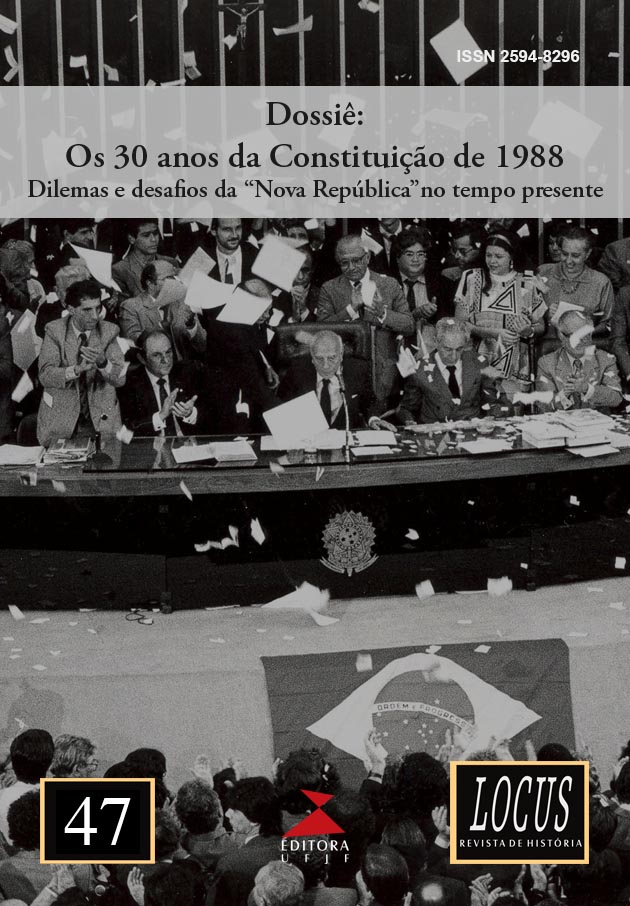Published 2023-08-01 — Updated on 2023-08-01
Versions
- 2023-08-01 (2)
- 2023-08-01 (1)
Keywords
- Democratic consolidation,
- Representative democracy,
- Liberal democracy,
- Third republic,
- Democracy in Brazil
How to Cite
Copyright (c) 2018 Angela de Castro Gomes Gomes, Jorge Ferreira

This work is licensed under a Creative Commons Attribution 4.0 International License.
Abstract
The objective of the article is to discuss the Brazilian historiographical production that, since the 1990s, comprises the Third Brazilian Republic (1945-1964) as an experience of representative democracy in the process of consolidation. In this sense, the article criticizes traditional theses that, particularly with the concept of populism, disqualify the political history of the period. At the same time, he argues that the consolidation of political parties, increased political participation and increased electoral competition coexisted with the resistance of conservative political groups that questioned the electoral results and, at times, resorted to sectors of the Armed Forces to put an end to the democratic process itself. Despite the problems inherent in any political system, what is proposed is that, in the period, large sectors of Brazilian society built and, at the same time, participated in liberal-democratic institutions.

